In table tennis, Chinese faces are everywhere
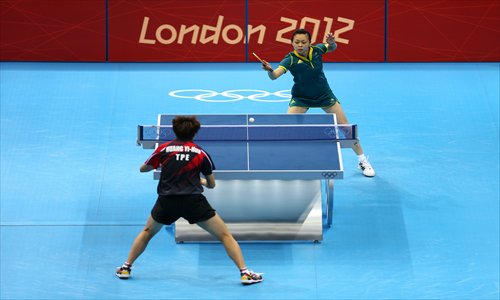
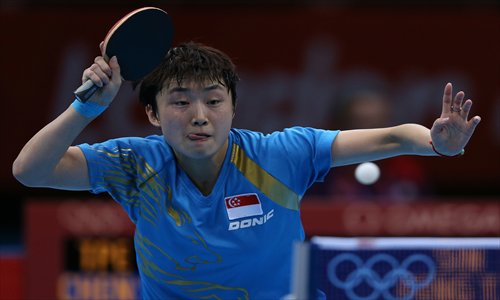
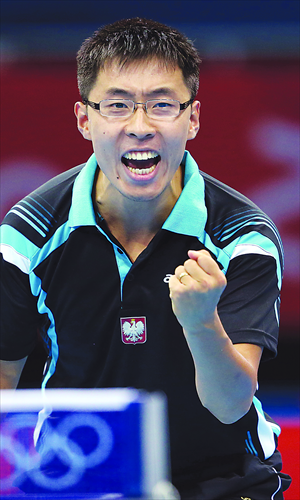
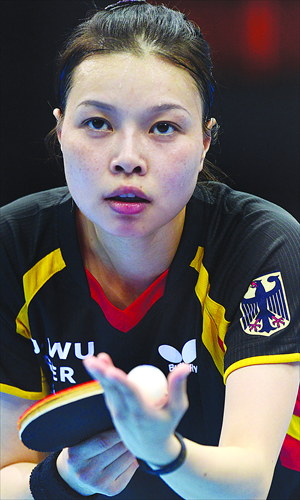
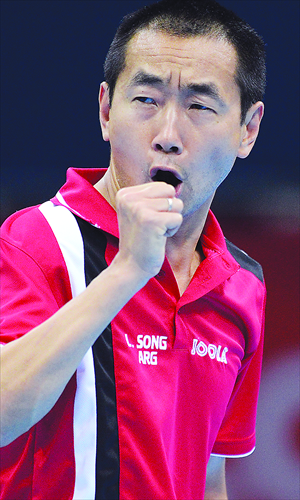
Chinese faces were seen every day at the table tennis arena at the ExCeL Center since the tournament opened on Saturday, representing a number of countries, except China.
Some players were born in China and left the country to play elsewhere - from Australia to Turkey, from Spain to Croatia. Others, like the US star player Ariel Hsing, were born in their native countries to parents from China.
Among the 70 women's players competing in the singles events, almost one third were born and trained in China. A dozen players in men's singles events are also formerly played for China. In some matches, players at both ends of the table were Chinese-born or of Chinese origin.
China is never short of table tennis talents as the country has invested heavily in the sport since Rong Guotuan claimed the 1959 world singles championship, the first world title of any sports for China.
The vast number of talents and intense competition has forced many Chinese players to look for a way to succeed. Some are eyeing opportunities to compete at international events, chances they may never have in China. Others, already well established, are hoping to make the most out of their talents.
Current world No. 8, Singapore's Feng Tianwei might be a good example of the former player.
Feng dropped out of China's national youth team in 2005. She began training in Singapore in March 2007 and commenced her international career in competitive table tennis the following month. She became a Singaporean citizen in January 2008.
Feng, together with two other ex-Chinese players, toppled China in World Team Championships in Moscow in 2010. Feng is one of the strong contenders for the gold medal in London.
Ni Xialian, 49, the most senior female Olympian in table tennis in London representing Luxembourg, said she believes Chinese players who switched allegiance have helped promote the sport.
"There are so many table tennis talents in China and they trained so hard. But only a few can actually compete at the international level. It would be a pity if all of them just stay in China," she said.
Ni began playing at age 6 and was a member of China's national table tennis team for six years in the 1980s. She won two gold medals in doubles and team events in the 1983 World Championships. She moved to Germany in 1989 and stayed there for two years before settling down in Luxembourg. She represented Luxembourg in Athens, Beijing and London Olympic Games.
While many believe that former Chinese players had helped their adopted countries or regions develop table tennis, some also worried that some countries just used Chinese to achieve good results and no longer bothered to groom local talents.
To address the concern, the International Table Tennis Federation (ITTF) decided in 2008 to ban players from switching national allegiance after the age of 21.
The rule demands a qualification period of seven years for 18-21-year olds, five years for 15-18-year olds and three years for those under 15.
The rule, which applies to the World Cup and World Championships, was widely perceived as an attempt to stop the flow of Chinese players moving to represent other nations.
Commenting on the league of overseas Chinese players, Liu Guoliang, head coach of Chinese men's table tennis team, said he does not believe the players would pose threats to China as long as China keeps improving.
"For the development of the sport, countries should groom their own athletes instead of relying on former Chinese players. Those players may be able to help the countries achieve good results within a short time. But in the long run, it's not enough to compete with China," he said.
China has won 20 of 24 gold medals available since table tennis was introduced into the Olympic Games in 1988. Four years ago in Beijing, it took away all six gold medals in the men's and women's singles, plus gold in both team events.
On Monday, No. 1 seeded Zhang Jike of China, the defending world champion, won easily 4-0 against Turkey's Bora Vang in men's third round of table tennis match.
Vang was born and trained in China. He moved to Turkey five years ago. Zhang said Vang's speed was fast and had already played a round.
In another development, China's players Ding Ning and Li Xiaoxia on Sunday defeated their opponents in the third round of women's table tennis events in London, a step closer to their goal of meeting in the women's singles finals.
Xinhua